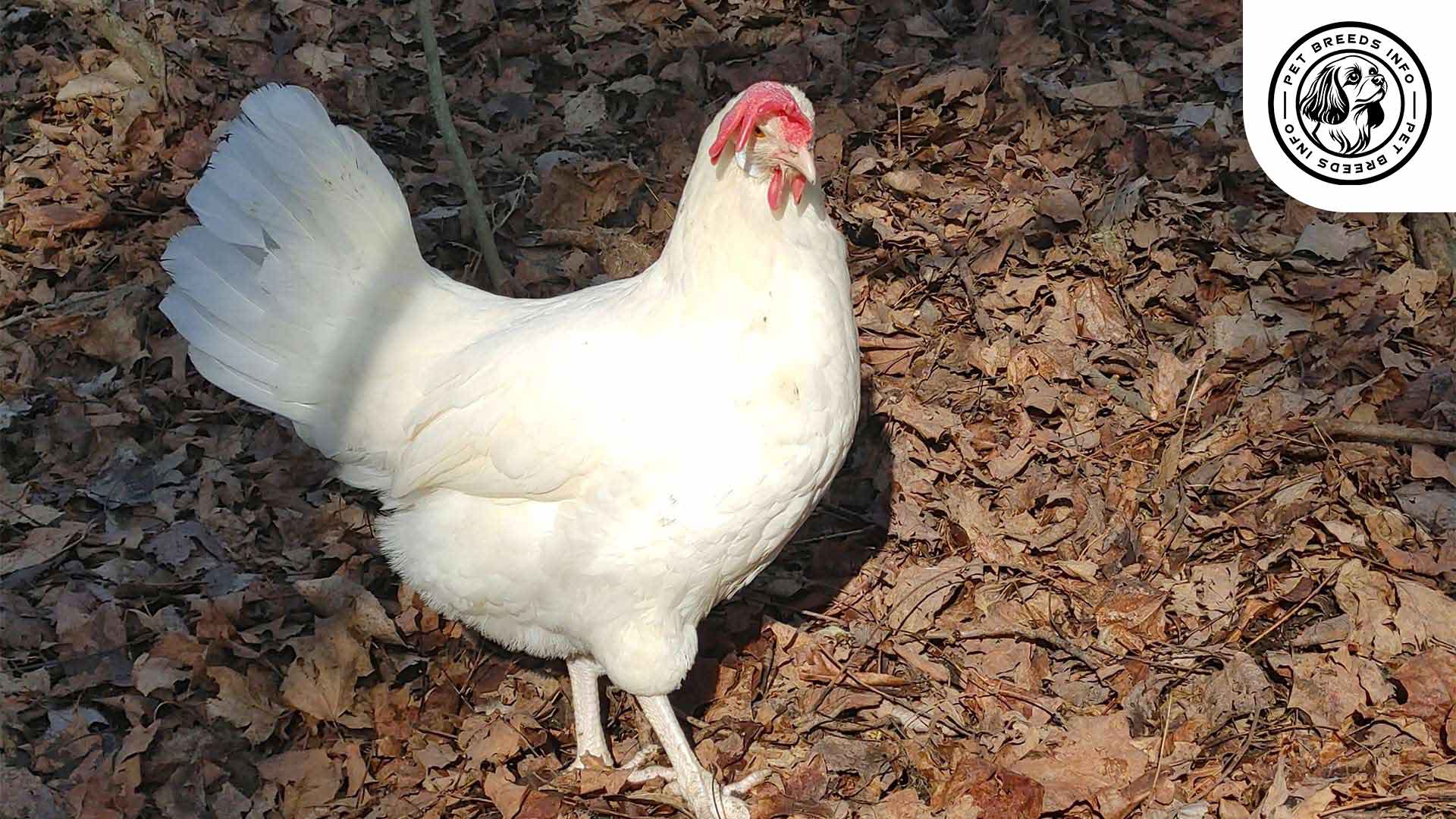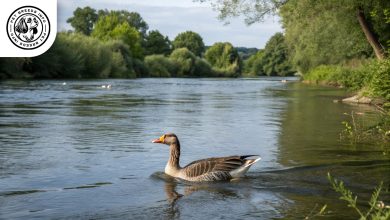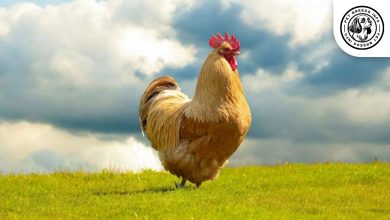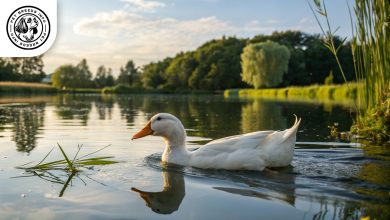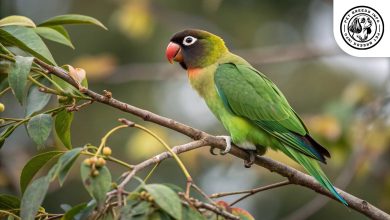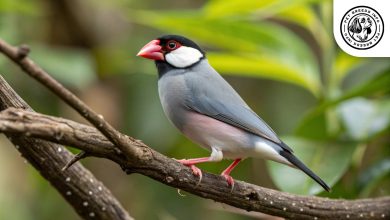Minorca Chicken Breed: Personality, Lifespan, Food & Care
General Introduction of the Breed
The Minorca Chicken, known as “Menorquina” in Spanish, is a chicken breed that originates from the island of Minorca, Spain. It is also referred to as “Gallina Menorquina” in its homeland. The breed was developed for its excellent egg-laying abilities and hardiness in warm climates.
Historically, Minorca Chickens were brought to England in the 18th century, where selective breeding improved their size and productivity. They later spread to other parts of Europe and the United States, gaining popularity as a reliable layer of large white eggs.
Table of Contents
| Common Name | Minorca Chicken |
| Scientific Name | Gallus gallus domesticus |
| Origin | Minorca Island, Spain |
| Size | Male: 8 lbs (3.6 kg), Female: 6.5 lbs (3 kg) |
| Lifespan | 6 to 8 years |
| Talking Ability | Low (not known for vocal mimicry) |
| Colors | Black, White, Blue |
| Noise Level | Moderate |
| Social Behavior | Independent, prefers same-breed flocks |
Physical Characteristics
Minorca Chickens are large, elegant-looking birds with a muscular yet sleek body structure. Males typically weigh around 8 lbs (3.6 kg), while females weigh about 6.5 lbs (3 kg).
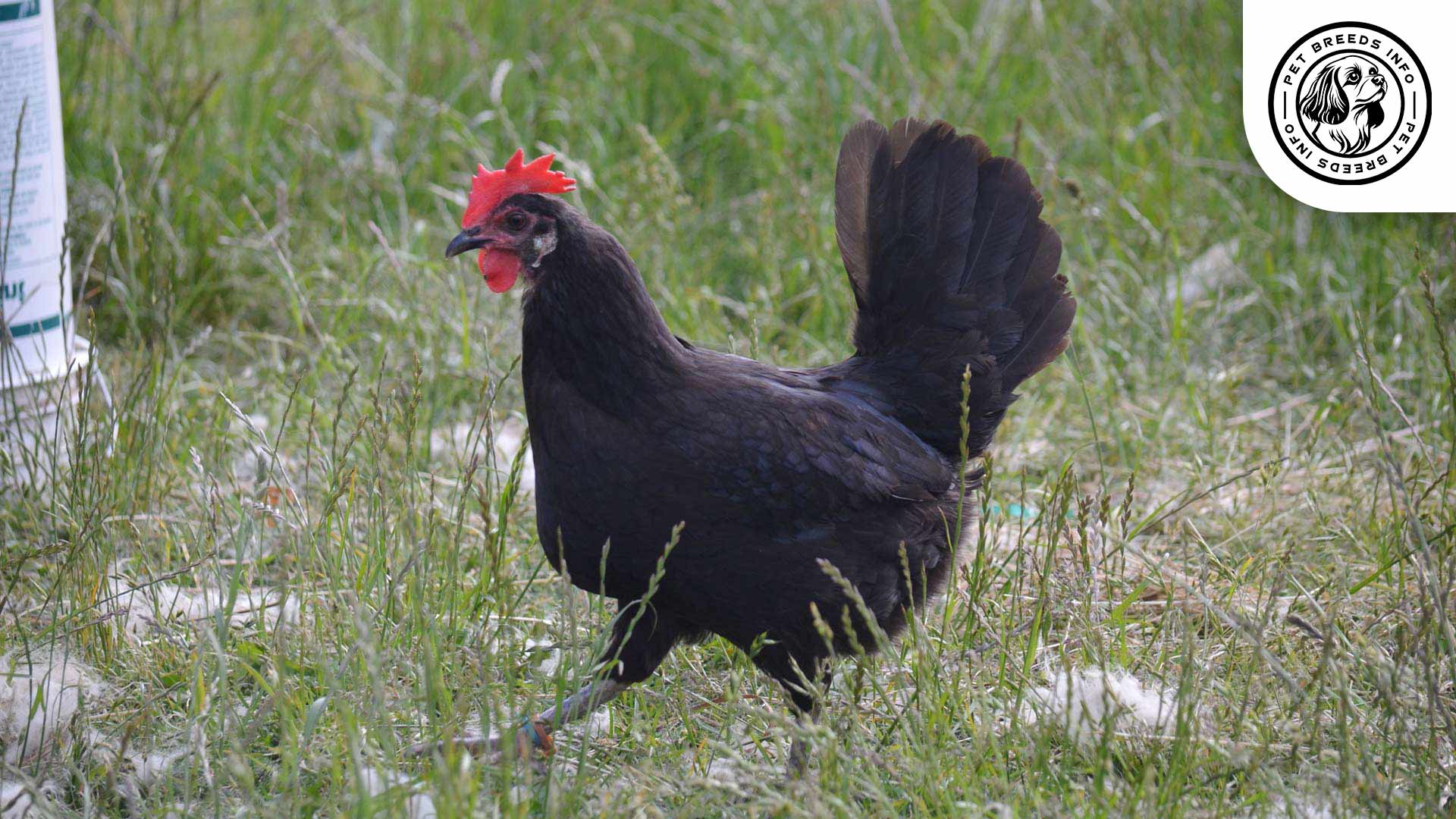
Their feathers are glossy and come mainly in black, white, and blue color varieties. The breed has a single, large comb that is bright red, with the roosters having a more prominent comb than the hens.
Minorca Chickens have dark, expressive eyes that may appear black or dark brown. Their wattles and earlobes are bright red and white, respectively, contributing to their striking appearance.
The breed has moderately long legs and a well-arched, upright tail, adding to its graceful demeanor.
Read More: Naked Neck Chicken
Personality and Temperament
Minorca Chickens are intelligent birds with an independent demeanor. They are active and alert, requiring sufficient space to roam and forage.
Although not overly affectionate, they can develop a level of trust with their owners over time. They exhibit social behavior within their flock but may not be the friendliest toward other poultry breeds.
They are hardy birds but tend to be somewhat skittish, making them less suited for households with small children expecting a pet-like chicken.

Care and Maintenance Requirements
Minorca Chickens require an open, spacious environment where they can move freely. They thrive in free-range conditions but can adapt to a large, well-maintained chicken coop.
Minimal grooming is needed, as they do not have excessive feathering. However, regular health checks, especially for their large combs that may be prone to frostbite in colder climates, are recommended.
These birds are best suited for warm and dry climates since they are highly susceptible to cold weather.
Diet and Nutrition
A balanced diet consisting of high-quality layer feed, grains, and occasional vegetable scraps supports their health and egg production.
Calcium supplements, such as crushed oyster shells, should be provided to maintain strong eggshells. Fresh water should always be available.
Foods to avoid include chocolate, greasy foods, and excessive amounts of salty or processed foods.
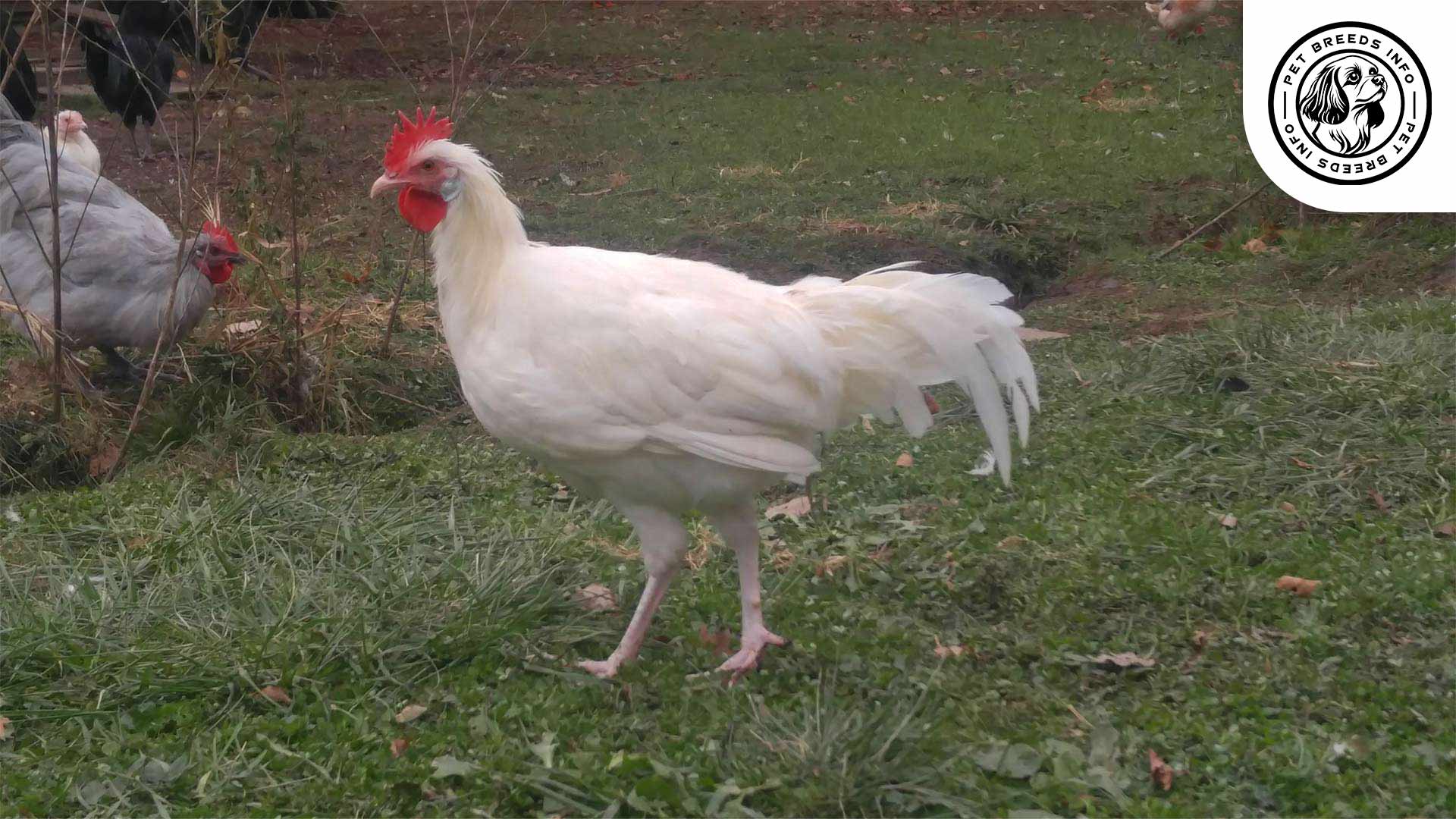
Health and Common Medical Issues
Minorca Chickens are robust birds with few genetic health concerns, but they may be prone to frostbite due to their large combs, requiring extra precautions in freezing temperatures.
They have an average lifespan of 6 to 8 years when properly cared for.
Routine vaccinations, parasite prevention, and regular checkups with a poultry veterinarian ensure their longevity.
Read More: Serama Chicken
Training and Behavior Management
Training Minorca Chickens to recognize their owner and respond to food cues is possible, although they are not as trainable as domesticated pets like dogs.
Early socialization helps them become less flighty and more comfortable around humans.
Reinforcing positive behavior with food rewards encourages friendly interactions.
Interaction with Other Animals and Humans
Minorca Chickens can coexist with other chickens of similar temperament but may not be ideal for mixed flocks with more aggressive breeds.
They are independent and do not require constant human interaction, making them a good choice for small farm owners rather than those seeking a highly interactive pet chicken.
Although not aggressive, they are somewhat aloof around children and may not tolerate excessive handling.
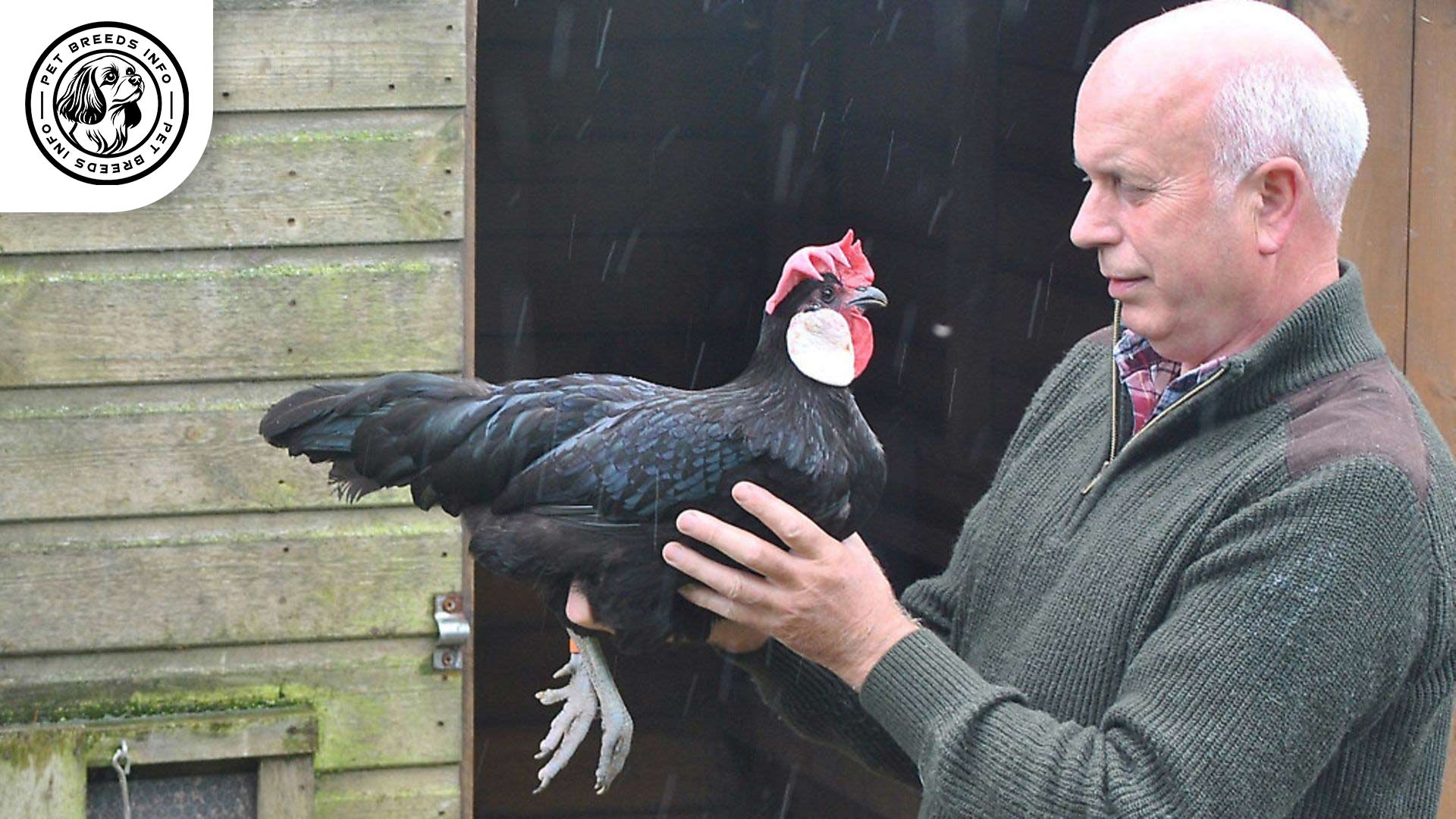
Price and Availability
The cost of purchasing a Minorca Chicken varies but generally ranges from $5 to $15 per chick, depending on the breeder, quality, and age.
When selecting a breeder, ensure that they provide healthy chickens with proper vaccinations and care standards.
Minorca Chickens can sometimes be found through poultry farms, hatcheries, and reputable breeders specializing in heritage breeds.
Conclusion and Final Thoughts
The Minorca Chicken is a fantastic choice for those looking for a hardy, productive egg-layer suited to warm climates. However, its aloof disposition makes it less ideal for owners seeking a highly interactive backyard pet.
This breed thrives best in spacious environments with sufficient foraging opportunities. Owners should be prepared to provide winter protection for their large combs.
Overall, the Minorca Chicken is an excellent breed for dedicated poultry enthusiasts looking for a reliable and attractive bird.
Read More: Sicilian Buttercup Chicken
FAQ
Are Minorca Chickens good egg layers?
Yes, they are excellent layers of large white eggs.
Can Minorca Chickens tolerate cold weather?
Not well. Their large combs are prone to frostbite in cold climates.
Are they friendly with children?
Not ideal for children—they tend to be skittish and aloof.
What is their temperament like?
Intelligent, active, and independent but not overly affectionate.
Do they need a lot of space?
Yes, they thrive best in open, free-range environments.
